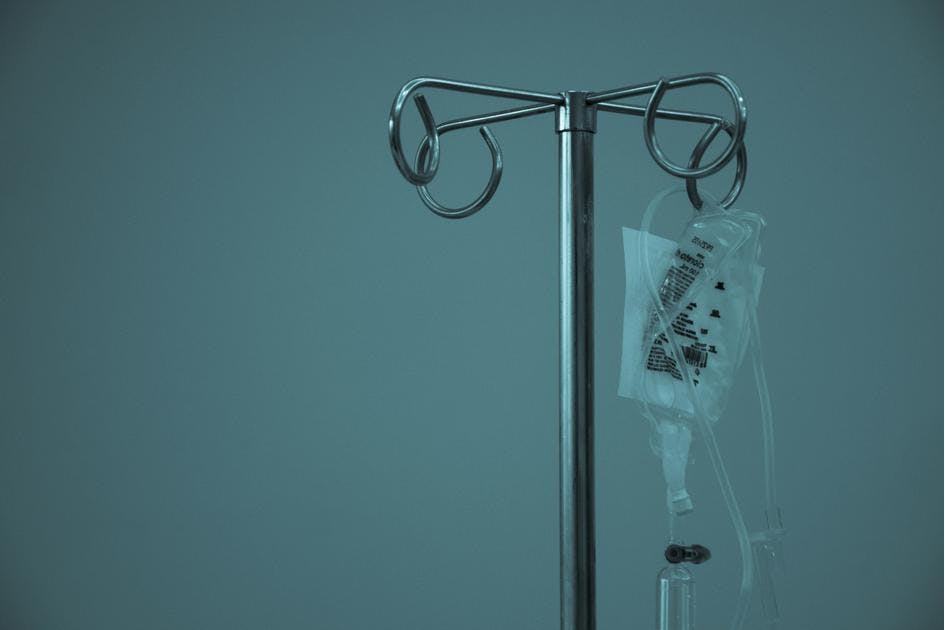
Tax Relief for Nursing Home Costs in Ireland – Everything You Need to Know

Summary
Learn how to claim 20% tax relief on nursing home costs in Ireland and how to backdate claims for previous years.
If you or a loved one are paying for nursing home care in Ireland, you may be entitled to valuable tax relief on those costs. Nursing home fees can be substantial, but Revenue offers medical expenses tax relief that can help reduce the financial burden.
In this guide, we’ll explain how nursing home tax relief works, who can claim, how much you can get back, and how to apply - including how to backdate claims for previous years.
Understanding Tax Relief on Nursing Home Costs
Nursing home fees qualify as medical expenses under Irish tax law. This means you can claim Income Tax relief on qualifying nursing home expenses as a deduction from your total income, so the relief is effectively at your marginal rate (20% or 40%), depending on how much of your income is taxed at each rate
The relief applies whether you pay for:
- Your own nursing home care, or
- The care of a dependent relative, such as a parent, spouse, or sibling.
The tax refund can be significant, especially for long-term care or high monthly costs.
Who Can Claim Nursing Home Tax Relief?
You can claim tax relief if you pay nursing home fees for:
- Yourself
- Your spouse or civil partner
- A dependent relative (for example, a parent, sibling, or child)
A dependent relative generally means someone who is:
- Incapable of maintaining themselves due to age or disability, and
- Dependent on you for financial support.
Even if the nursing home resident isn’t your dependent, you may still be entitled to claim relief if you are the person making the payments.
What Nursing Home Costs Qualify?
The following expenses typically qualify for medical expenses tax relief:
- Nursing home accommodation and care fees
- Meals and medical care provided as part of the package
- On-site nursing and assistance services
- Medical treatments administered in the home
- Prescription medicines (if not already claimed under the Drugs Payment Scheme)
💡 Note: Relief is available where the nursing home provides 24-hour on-site nursing care.
How Much Tax Relief Can You Get?
You can claim 20%/40% tax relief on the total amount of qualifying fees paid.
For example:
- If annual nursing home costs are €60,000,
- Tax relief = 20% × €60,000 = €12,000 refund.
If multiple family members share the cost, the relief can be split between them in proportion to the amount each person paid.
How to Claim Nursing Home Tax Relief
You can backdate up to four years, so it’s worth claiming even if you’ve never done it before.
- Log in to myAccount
- Go to “Manage your tax for the previous 4 years”
- Cick “Request” Beside 'Statement of Liability' in the relevant year
- Select “Nursing Home Expenses” under 'Health' in section 4 'Tax credits & reliefs'
- Input the relevant details
- Submit and review
- Revenue issues an updated statement/tax credit position and processes any refund.
Can You Backdate a Claim?
Yes - you can backdate nursing home tax relief for up to four years.
For example, a claim made in 2026 can include eligible costs from 2022, 2023, 2024, and 2025.
Given the high cost of care, backdated claims can often lead to thousands of euro in refunds.
Claiming Tax Relief When Using the Fair Deal Scheme
If the person receiving care is in the Nursing Home Support Scheme (Fair Deal), you can still claim tax relief — but only on the portion of costs actually paid by you.
Here’s how it works:
- Fair Deal contribution: The HSE covers part of the cost.
- Your payment: You pay the balance (typically 80% of income plus 7.5% of assets).
- Relief: You can claim tax relief only on your out-of-pocket contribution.
So if the total cost is €60,000 and you personally pay €20,000 under the Fair Deal scheme, you can claim 20% of €20,000 = €4,000.
Example Scenarios
Example 1: Paying for Your Parent’s Care
- Annual fees: €55,000
- You pay: €55,000
- Tax relief: 20% × €55,000 = €11,000 refund
Example 2: Two Siblings Sharing the Cost
- Annual fees: €60,000
- Each pays €30,000
- Tax relief: 20% × €30,000 = €6,000 each
Example 3: Fair Deal Scheme Participant
- Total cost: €60,000
- You pay €20,000 under Fair Deal
- Tax relief: 20% × €20,000 = €4,000 refund
Documents You’ll Need
Keep the following for your records:
- Nursing home invoices or statements
- Bank transfer or payment receipts
- Confirmation that the facility is HIQA-approved
- Breakdown of payments if shared between family members
Revenue may request supporting documentation, so it’s best to keep these for at least six years.
Combining Nursing Home Relief with Other Tax Credits
You may also be eligible for additional tax credits or allowances, such as:
- Dependent Relative Tax Credit
- Age Tax Credit (if over 65)
- Home Carer Credit (if caring for someone at home)
- Medical expenses for GP visits, prescriptions, or specialist care
Combining these can further reduce your tax bill.
Common Mistakes to Avoid
- Forgetting to claim for previous years (you can go back four years).
- Assuming you can’t claim if the resident is under the Fair Deal Scheme.
- Not keeping proof of payment in your own name.
- Claiming for unapproved or non-HIQA facilities (not eligible).
Get Help with Your Claim
At Irish Tax Hub, we can help you:
- Confirm which costs qualify for relief
- Calculate the potential refund
- Prepare and file your claim with Revenue
- Backdate claims for previous years
We specialise in helping individuals and families get the full tax relief they’re entitled to — quickly and accurately.
👉 Contact us today to review your eligibility and start your claim.
This blog post is for informational purposes only and does not constitute tax, financial, or legal advice. Tax laws and regulations are subject to change and may vary based on individual circumstances. Readers are strongly encouraged to consult with a qualified tax professional or financial advisor before making decisions based on the information provided. We make no guarantee regarding the accuracy, completeness, or applicability of this content to your particular tax situation.
Found this article helpful? Like and share it with others

About the Author
Damien Roche, CTA, ACA
Chartered Tax Advisor & Chartered Accountant | Co-founder of Irish Tax Hub
Damien is a dual-qualified Chartered Tax Advisor (CTA) and Chartered Accountant (ACA), and co-founder of Irish Tax Hub. He spent over six years in Deloitte Ireland's income tax department before founding Irish Tax Hub to provide free tax tools, clear information, and transparent pricing for Irish taxpayers.
Connect on LinkedInRelated Posts

Medical Expenses & Income Tax – What You Can Claim in Ireland 2026

This blog explains how to claim medical expenses tax relief in Ireland for 2026.

The Tax Benefits of Moving to Ireland

Ireland offers several tax advantages for individuals who are non-Irish domiciled